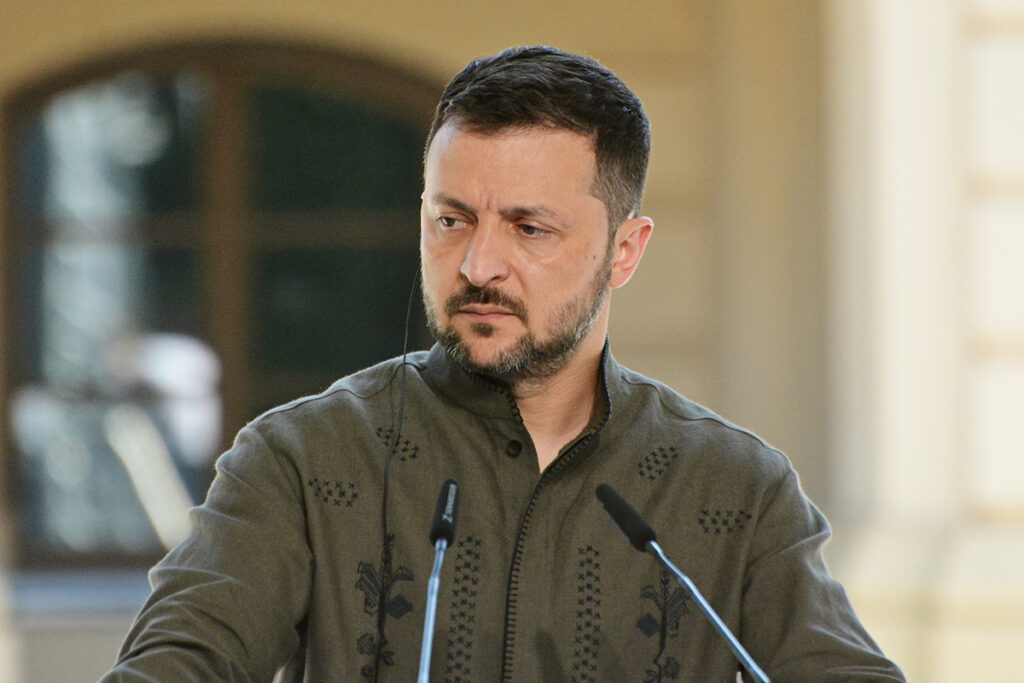Ukrainian President Volodymyr Zelenskyy has strongly criticized U.S. President Donald Trump, accusing him of being influenced by Russian disinformation. The comments come as the Trump administration explores a new approach to U.S.-Russia relations, signaling a potential shift in Washington’s stance on Ukraine.
Zelenskyy’s remarks were a response to Trump’s recent claims that Ukraine could have prevented the war through negotiations and was partly to blame for the ongoing conflict. Trump also alleged that Zelenskyy’s approval rating had dropped to just 4%, a figure that lacked supporting evidence.
Putin’s Openness to Meeting Trump
Meanwhile, Russian President Vladimir Putin expressed willingness to meet with Trump, a statement made shortly after high-level discussions between American and Russian officials. These talks, held in Saudi Arabia, were reportedly aimed at improving U.S.-Russia ties, discussing potential resolutions to the war, and possibly preparing for a summit between the two leaders.
Trump’s administration has taken a different approach from that of his predecessor, who strongly supported Ukraine with military aid and diplomatic backing. The new U.S. position appears to prioritize negotiations with Russia, which has raised concerns in Kyiv and among European allies. Ukraine and its supporters have expressed frustration over being excluded from the Saudi Arabia talks, fearing that any deal struck without their direct involvement could undermine their position.
Ukraine’s Response to Trump’s Claims
Zelenskyy rejected Trump’s assertions and dismissed them as Russian disinformation. He pushed back against claims that Ukraine is overwhelmingly dependent on U.S. aid, clarifying that roughly a third of Ukraine’s weapons are domestically produced and that European nations contribute significantly to its defense efforts.
In response to Trump’s suggestion that Ukraine should hold elections despite ongoing martial law, Ukrainian officials pointed to constitutional provisions that prevent such measures during wartime. The war, which began with Russia’s full-scale invasion on February 24, 2022, continues to impose severe security challenges, making nationwide elections impractical.
Zelenskyy has called on Trump’s envoy, Keith Kellogg, to assess public sentiment in Ukraine firsthand, emphasizing that Ukrainians stand by their leadership in the face of Russian aggression. Kellogg, a retired U.S. general and special envoy for Ukraine and Russia, arrived in Kyiv as part of the administration’s diplomatic efforts.
Russia’s Reaction and Ongoing Battlefield Struggles
Russian state-controlled media reacted positively to Trump’s remarks, interpreting them as a rejection of Zelenskyy’s concerns. Russian broadcasters portrayed Trump as dismissing Ukraine’s objections regarding U.S.-Russia talks, with some outlets describing his stance as a clear rebuke of the Ukrainian leader.
On the battlefield, Ukraine continues to struggle against relentless Russian advances. Russian forces have gained ground in the east, gradually pushing back Ukrainian defenders along the 600-mile front line. The situation remains dire, with Ukraine’s military under increasing pressure to hold key positions as the war enters its fourth year.
Uncertain Future for Ukraine’s Security
As discussions around a potential peace deal continue, Ukraine’s long-term security remains uncertain. U.S. officials have indicated that Ukraine’s hopes of joining NATO in the near future are unlikely to materialize, complicating its ability to deter future Russian aggression.
Zelenskyy has insisted that any settlement with Russia must come with concrete U.S. security commitments to prevent another invasion. Kellogg acknowledged the importance of Ukraine’s sovereignty and independence, emphasizing that his mission is to gather insights and relay them to Trump and Secretary of State Marco Rubio.
As diplomatic efforts unfold, Ukraine faces growing concerns over its role in negotiations and whether U.S. policy shifts could weaken its position. With Russia gaining confidence and the Trump administration rethinking its stance, the balance of power in the conflict could be shifting in ways that will shape Ukraine’s future for years to come.


